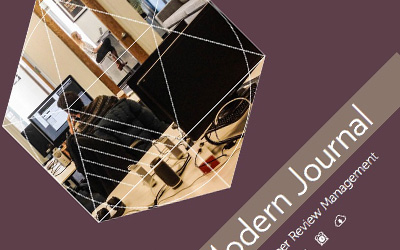
Up next in The Open Access Stories series - an interview with Roland Meesters, Editor-in-Chief of Journal of Applied Bioanalysis!
As part of The Open Access Stories series, we’re thrilled to welcome Torsten Reimer to the blog! Share this story and your own on Twitter by using the hashtag - #MyOAStory.
Torsten Reimer is the Scholarly Communications Officer at Imperial College London, where he is responsible for the cross-College activities in Open Access and Research Data Management. He ensures that the College’s developing digital infrastructure facilitates the highest standards of research communication and meets funder and regulatory requirements.
My OA Story: Q&A with Torsten Reimer
At what point in your career did you begin to become involved in the OA Movement?
TR: I became involved with initiatives to improve scholarly communication very early in my career. As a student, and later researcher, I worked on a nationally funded digital humanities pilot in Germany to develop a scholarly online platform for historians – this was in the late 90s. We saw online publishing as a faster, more efficient means of scholarly communication, especially in a discipline with a slow publication lifecycle, and we felt strongly that research would have more impact if everyone could access it. Amongst the projects that we launched was a peer-reviewed eBook series, a review journal, and a scholarly journal – all freely accessible online. The review journal was launched in 2001 and has just published its 167th issue, this time with some 150 reviews of scholarly publications!
Since these initiatives started online publication has become much more common, but access to scholarly content is still a problem. Even a well-funded university like Imperial College London, where I now work, cannot afford access to all outputs that are relevant for our academics and students. Similarly, not everyone who wants to access publications of Imperial academics can do so, which reduces the global impact of our research.
At Imperial College I am responsible for the development and implementation of strategies and policies for Open Access and Research Data Management, working closely with the College Library and ICT. Over the last two years we have developed a new workflow that combines “green” and “gold” OA with the simple message of ‘deposit, we do the rest’, supported by a communications programme to raise awareness. I am also involved in a range of national and international activities to improve scholarly communications and remove barriers to OA uptake.
Why do you believe in the importance of OA, and what steps do you think scholars can take to promote open scholarship, whether early or well into their career?
TR: Publishing scholarly outputs as open access increases readership, citations, and impact. It also ensures that research that has been supported by the public can be accessed by the public. Even in wealthy countries like the UK access to research is a problem, and in other countries even major national research facilities struggle with access to literature that might help save lives. This goes beyond the academic sector and affects businesses, charities, independent researchers and the general public. There is clear evidence that both authors and society benefit from OA.
Therefore I think the most important thing scholars can do is make their research outputs available openly as soon as possible, and to encourage others to do the same. Open access does not have to come at a cost – depositing a peer-reviewed manuscript on acceptance for publications only takes a few minutes.
I would also encourage scholars to look beyond the Impact Factor of journals: it is the quality of the published research that makes the quality of the journal, and not the other way around. I appreciate that at certain career stages publishing in a prestigious journal may be seen as helpful, but those journals, too, offer open access options. For scholars in more senior positions I would suggest taking a look at DORA, the San Francisco Declaration on Research Assessment. DORA aims to refocus assessment from impact factor to quality, for example in the process of appointing or promoting staff. It goes beyond open access, but reducing the perceived importance of unsuitable tools such as the Impact Factor will also help OA.
How far do you think we have come in advocating for OA? What are your thoughts on the outlook of the OA Movement?
TR: Open access has gained a lot of momentum recently, although some would argue that it should have done so ten years ago. Be that as it may, a recent report on Monitoring the transition to Open Access shows that two-thirds of journals now offer an OA option, and that 27% of articles are now available as OA within 2 years of publication; in the UK that number stands at 35%. In the UK this change is at least partly driven by funder mandates, especially the Research Councils (RCUK) and the mandate for the REF, the UK’s national Research Excellence Framework. RCUK have made significant amounts of money available for OA, specifically to pay for article processing charges (APC).
Since 2012 centrally managed APC expenditure has increased by 555%. It now constitutes 12% of universities total expenditure on journals. RCUK made millions available to encourage a transition from the subscription model to full OA publishing. While a few journals have indeed ‘flipped’, overall the transition has not happened. Publishing has just become more expensive. Admittedly, more content is now available openly at the point of publication, but consider the cost – at Imperial we pay approximately 50% more for an article in a hybrid journal than in a full OA journal, and that does not even count the millions spent on subscriptions. The word ‘dysfunctional’ features a lot in the hybrid context in the 2014 study Developing an Effective Market for Open Access.
Interestingly, the UK Funding Councils have taken a different approach – instead of paying for open access they have mandated deposit on acceptance. Admittedly this has caused problems for universities – developing new workflows and systems, hiring more staff to process deposits and raise awareness – especially as no funds were made available to cover the costs. However, the mandate has certainly focused minds and at Imperial we can show a significant increase in deposits. Unsurprisingly, much of the discussion in the UK has been about compliance, but I think it is time for academia to move beyond that and for universities and researchers to set our own agenda. There are now signs that this is starting to happen and at Imperial we certainly hope to play a role in this. Open access benefits academia – I think it is time we start owning OA.
Thank you to Torsten Reimer for taking the time to be a part of The Open Access Stories series! Share this story and how you are supporting the OA Movement on Twitter and Facebook by using the hashtag #MyOAStory!

This work is licensed under a Creative Commons Attribution 2.0 Generic License.








